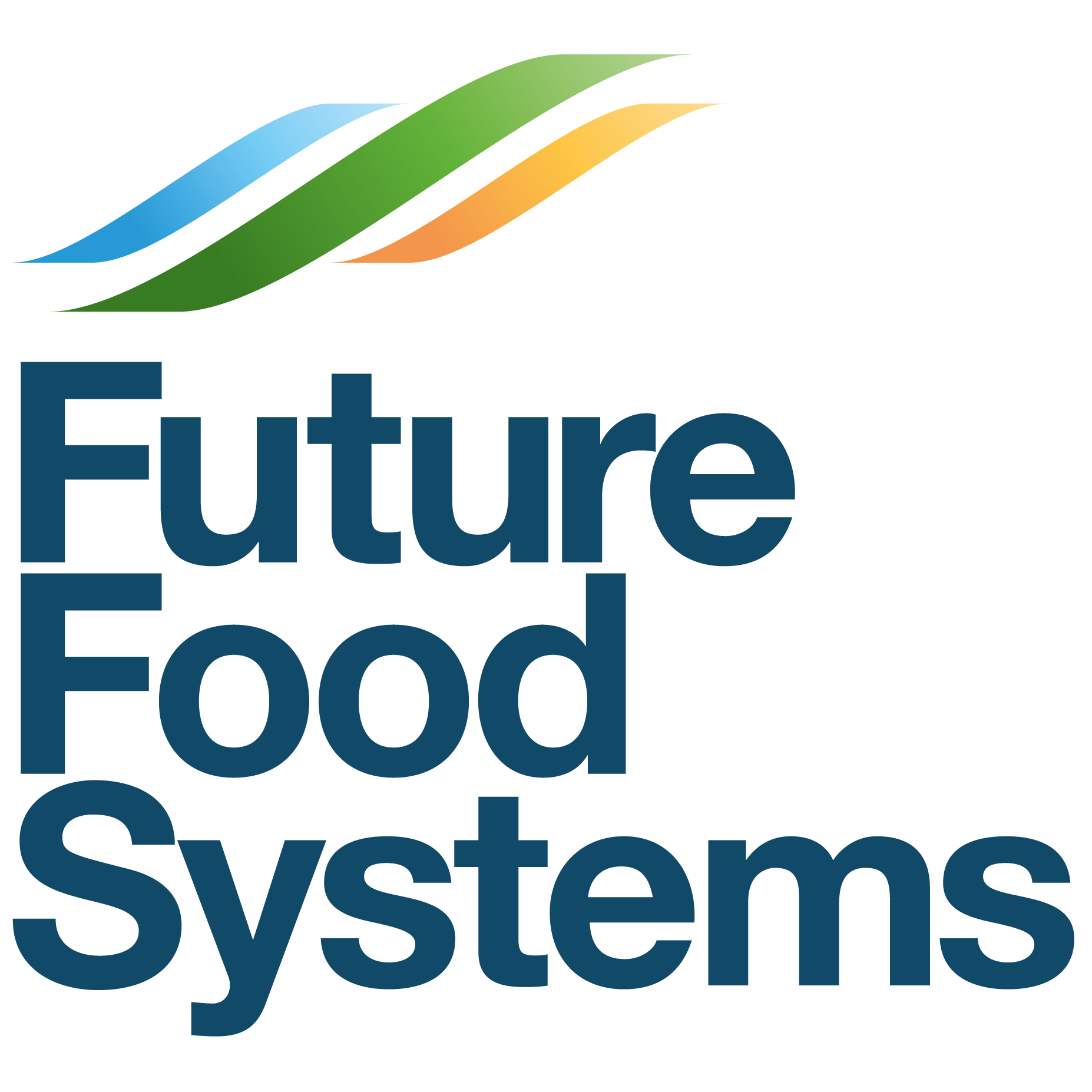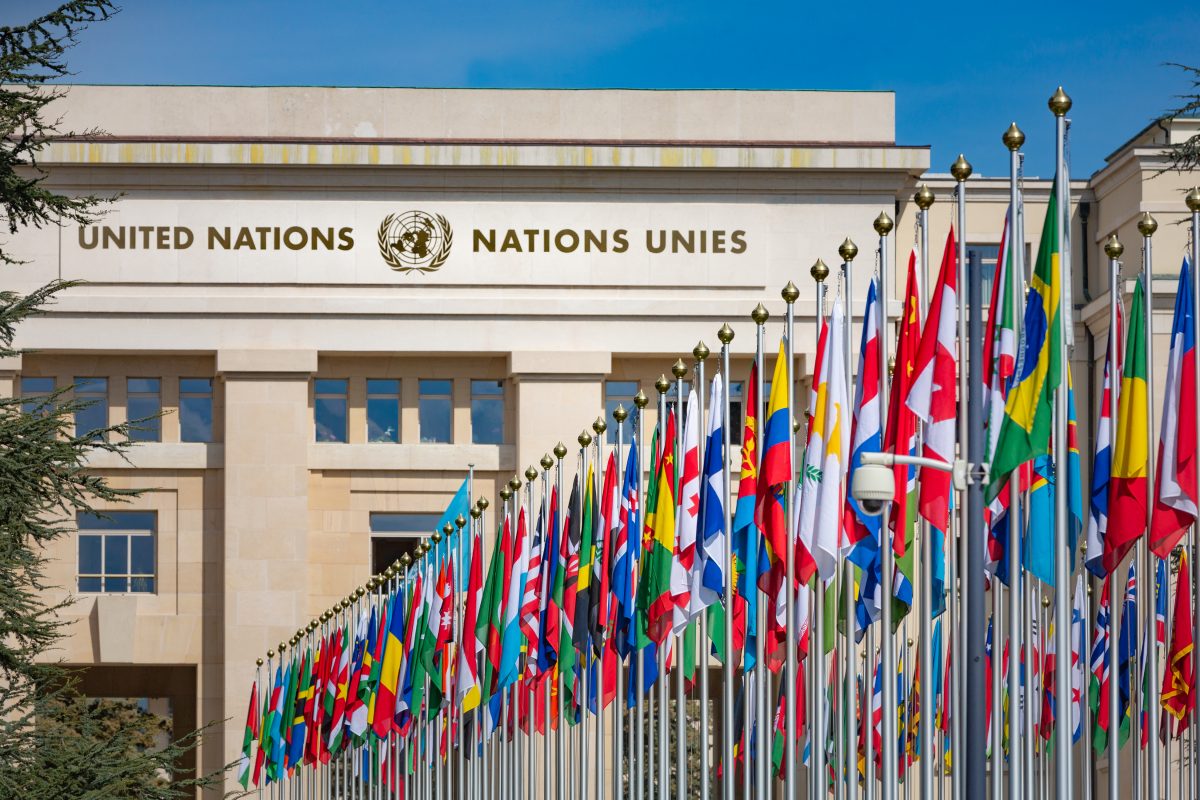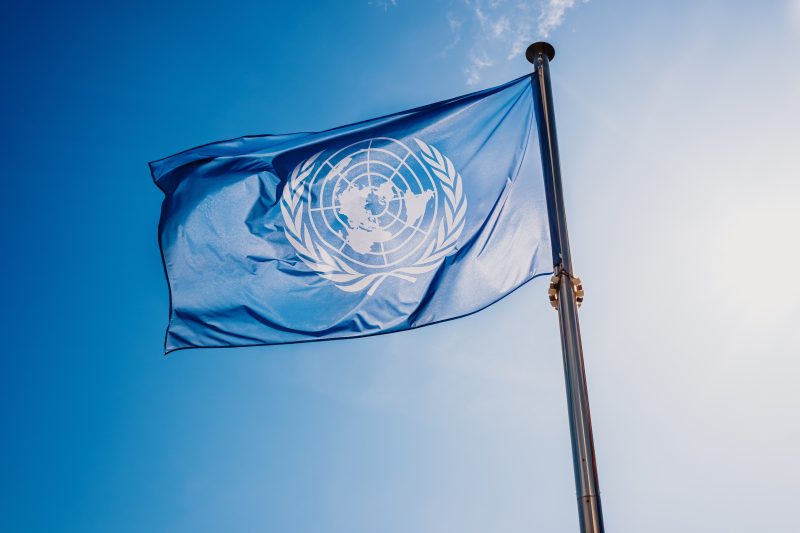On World Food Day in December 2019, the UN Secretary-General announced a Food Systems Summit to take place in 2021. In the lead-up to the Summit, scheduled for September 2021, the United Nations is shining a spotlight on developing more resilient, sustainable and equitable global food systems – reinforcing and providing high-level endorsement of the Future Food Systems CRC’s mission.
The UN Secretary General’s Food Systems Summit forms part of the UN’s Decade of Action, which spans the years 2020-2030 – a decade in which the United Nations community is committed to driving intensified global action towards achieving its 17 Sustainable Development Goals (SDGs).
Why food systems?
According to Martin Frick, Deputy to the Special Envoy for the 2021 Food Systems Summit, the term ‘food system’ refers to ‘the constellation of activities involved in producing, processing, transporting and consuming food’.
Food systems are entwined with every aspect of human existence, Frick notes; as such, the health of food systems profoundly affects the health of our bodies, environments, economies and cultures.
‘Too many of the world’s food systems are fragile, unexamined and vulnerable to collapse’, he says, citing the COVID-19 pandemic as an example of the chaos and suffering that can ensue when food systems fail.
‘The resulting disorder threatens our education, health and economy, as well as human rights, peace and security,’ Frick adds, with the poor and marginali[s]ed most heavily impacted by such disruptions.
‘The good news is that we know what we need to do to get back on track. Scientists agree that transforming our food systems is among the most powerful ways to change course and make progress towards all 17 Sustainable Development Goals. Rebuilding the food systems of the world will also enable us to answer the UN Secretary-General’s call to “build back better” from COVID-19,’ Frick states.
‘We are all part of the food system, and so we all must come together to bring about the transformation that the world needs.’
UN Secretary General’s Food Systems Summit
In September, United Nations Secretary-General António Guterres will convene the UN’s inaugural Food Systems Summit, which ‘will awaken the world to the fact that we all must work together to transform the way the world produces, consumes and thinks about food.’
One of the UN’s first big events of the decade, the 2021 Food Systems Summit is aimed at ‘launch[ing] bold new actions to deliver progress on all 17 SDGs, each of which relies to some degree on healthier, more sustainable and equitable food systems’, the UN states.
The solutions-focused event, designed for ‘everyone, everywhere’, will bring together leading voices from science, business, policy, healthcare and academia and other stakeholders committed to wide-ranging collective action to transform food systems across the globe.
These key players will convene before, during and after the Summit to contribute to its agenda and help develop strategies by which to bring about tangible, positive changes to existing systems of food production, supply and consumption.
The people’s summit is ‘not just as a point in time in September 2021, but … a year-long global engagement process to bring solutions to reali[s]ing the Sustainable Development Goals’, Frick says.
Watch the official UN’s Food Systems Summit video below.
A platform for global input
The Summit and its flotilla of related working groups, dialogues and events are aimed at empowering people across the world ‘to leverage food systems as accelerators of progress to reali[s]e the vision of the [UN’s] 2030 Agenda for Sustainable Development’.
To this end, the UN is seeking global input and, with this in mind, has launched an online Summit Community: a highly collaborative space geared towards guiding the science, solutions, concepts and outcomes of the Summit.
The platform is open to anyone with an interest in food systems at all levels, and will be a key entry point for stakeholder engagement on defining the solutions.
‘The very promise of the Sustainable Development Goals is a fair and sustainable world in which no one is left behind. Our food systems do have the potential to transform our global reality, but everyone and everything must change,’ says Frick.
‘We hope you will get involved and have your voice heard.’
Get involved
Help shape the Food System Summit Action Tracks
Five interconnected Action Tracks, aligned with the Food System Summit’s five objectives, will guide the Summit agenda. Planning these offers food systems stakeholders from all walks and all nations a space in which to share, learn, forge partnerships, initiate new actions and amplify existing initiatives.
The Action Tracks are designed to help identify solutions that can deliver wide-reaching benefits. Together, they will explore how ‘key cross-cutting levers of change’ including governance, finance, data, innovation, culture, and the empowerment of women and young people can be mobilised to meet the Summit’s objectives.
Action Track 1: Ensure access to safe and nutritious food for all
Achieving the goal means increasing the availability of nutritious food, making food more affordable and reducing inequities in access to food.
Read the December 2020 Public Forum Report.
View the Discussion Starter Paper.
Take the Action Track 1 survey.
Action Track 2: Shift to sustainable consumption patterns
Building consumer demand for sustainably produced food – strengthening local value chains, improving nutrition and promoting reuse and recycling of food resources, especially among the most vulnerable. Recognising the need to eliminate wasteful patterns of food consumption and facilitate dietary transition towards more nutritious foods that require fewer resources to produce and transport.
Read the December 2020 Public Forum Report.
View the Discussion Starter Paper.
Take the Action Track 2 survey.
Action Track 3: Boost nature-positive production
Optimising environmental resource use in food production, processing and distribution to reduce biodiversity loss, pollution, water use, soil degradation and greenhouse gas emissions, supporting ‘food system governance that realigns incentives to reduce food losses and other negative environmental impacts’.
View the Discussion Starter Paper.
Take the Action Track 3 survey.
Action Track 4: Advance equitable livelihoods
Contribute to the elimination of poverty by promoting full and productive employment for all actors along the food value chain, enabling entrepreneurship and addressing inequitable access to resources and distribution of value, ensuring that food systems ‘leave no-one behind’.
Read the December 2020 Public Forum Report.
View the Discussion Starter Paper.
Take the Action Track 4 survey.
Action Track 5: Build resilience to vulnerabilities, shocks and stress
Ensure the continued functionality of sustainable food systems in areas prone to conflict and/or natural disasters, and promote global action to protect food supplies from the impacts of pandemics, ensure that ‘all people within a food system are empowered to prepare for, withstand, and recover from instability’ and help people everywhere participate in food systems that ‘deliver food security, nutrition and equitable livelihoods for all’.
View the Discussion Starter Paper.
Take the Action Track 5 survey.
By collating feedback from the Action Track surveys, the organisers hope to enhance the content of the summit and collect ideas for ‘potential game-changing and systemic solutions to ensure environmental resiliency, economic resiliency and social resiliency in food systems’, said Frick.
For more information about the five UN Food Systems Summit Action Tracks and/or to participate in Action Track surveys and help shape the Summit agenda, click here.
Summit Dialogues
The UN invites all interested parties, from youth activists to indigenous leaders, smallholder farmers to scientists and CEOs, to participate in or convene a Food Systems Summit Dialogue. The idea is to help it identify ‘the most powerful ways to make food systems stronger and more equitable, ultimately driving progress in all of the SDGs’.
For more information on Food Systems Summit Dialogues and how you can participate, click here.
Champions Network
By signing on as a UN Food Systems Hero, you commit to ‘learn, share, gather and act for food systems transformation’. Register your name and contact details to receive the latest news, communication toolkits, instructions on how to organise an independent Summit Dialogue, and other ways you can take action.
To join the Champions Network, click here.
Social media toolkit
The UN has developed a social media toolkit around the Food Systems Summit and its objectives.
Related events
The UN and Food Systems Summit taskforce have helped to organise numerous events, ranging from educational webinars to global summits on energy, climate and food security.
These events are designed to provide ‘opportunities for learning and conversations to move participants toward action’ in the lead-up to September’s Food Systems Summit. They will be taking place in countries across the world, with most available online.
To view the full calendar of Food Systems Summit-related events, click here.
Further information
Read the draft concept paper from the UN’s Scientific Group on Food systems here.
For more information, visit the UN’s Food Systems Summit website.
Sources
UN Food Systems Summit I United Nations
New year, new food systems I United Nations


